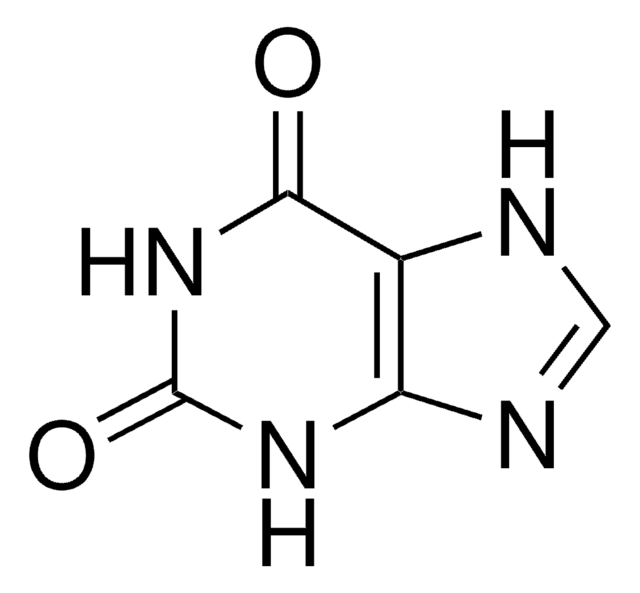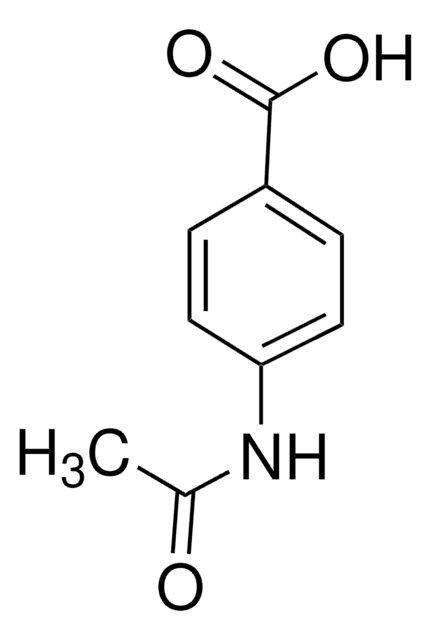About This Item
Recommended Products
biological source
synthetic (organic)
Quality Level
Assay
≥99.0%
form
powder
mp
>300 °C (lit.)
solubility
formic acid: water (2:1): 50 mg/mL, clear to slightly hazy, colorless to yellow
SMILES string
O=C1NC=Nc2nc[nH]c12
InChI
1S/C5H4N4O/c10-5-3-4(7-1-6-3)8-2-9-5/h1-2H,(H2,6,7,8,9,10)
InChI key
FDGQSTZJBFJUBT-UHFFFAOYSA-N
Looking for similar products? Visit Product Comparison Guide
Application
- to gavage mice and to evaluate the activity of xanthine oxidase (XO) in pasteurized whole milk in vivo in potassium oxonate (PO) -induced mouse model of hyperuricemia
- as a supplement in Iscove′s modified Dulbecco′s medium (IMDM) medium to cultivate in-vitro cell line (EL-1 cells)
- as a pure standard for the quantification of hypoxanthine in vitreous fluid sample using high-performance liquid chromatography-ultra-violet (HPLC-UV) for the estimation of post-mortem interval
Biochem/physiol Actions
Storage Class Code
11 - Combustible Solids
WGK
WGK 3
Flash Point(F)
Not applicable
Flash Point(C)
Not applicable
Personal Protective Equipment
Regulatory Listings
Regulatory Listings are mainly provided for chemical products. Only limited information can be provided here for non-chemical products. No entry means none of the components are listed. It is the user’s obligation to ensure the safe and legal use of the product.
JAN Code
H9377-5G:
H9377-25G:
H9377-BULK:
H9377-100G:
2540010:
H9377-VAR:
H9377-1G:
Choose from one of the most recent versions:
Certificates of Analysis (COA)
Don't see the Right Version?
If you require a particular version, you can look up a specific certificate by the Lot or Batch number.
Already Own This Product?
Find documentation for the products that you have recently purchased in the Document Library.
Customers Also Viewed
Articles
Uric acid present in animal sera impacts serum-supplemented classical cell culture systems, influencing cell culture performance.
Our team of scientists has experience in all areas of research including Life Science, Material Science, Chemical Synthesis, Chromatography, Analytical and many others.
Contact Technical Service








